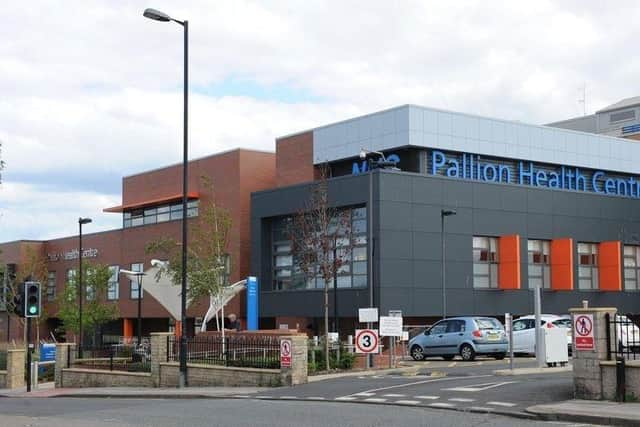Two new quarter-of-a-million pound health hubs aim to tackle health inequalities for Sunderland’s women
'We know that women in Sunderland will live on average 24 years in poor health compared to a national average of 19 years' Watch more of our videos on Shots! and live on Freeview channel 276
Visit Shots! now[1]Women in the city are set to benefit from two new health hubs thanks to a GBP250,000 investment in the new facilities. The cash injection from the North East and North Cumbria Integrated Care Board (ICB) aims to "make it easier to access services and improve women's experience and health outcomes".
The first hub, located at Pallion Health Centre, will provide specialist menopause care as well as cervical screening and coil fitting.

 Pallion Health Centre
Pallion Health CentreA second hub at Washington Primary Care Centre will offer the same services as well as mental health support specifically aimed at the city's women. Dr Saira Malik, women's health lead for the ICB in Sunderland and a GP in the city, said: "Women's health is so much more than just reproductive and postnatal health and for too long this has been the sole focus of commissioned services. "As a region we are committed to delivering a whole life course approach to women's health, taking into account population health needs, but also the impact of health inequalities on those who are most vulnerable in society, including women from ethnic minority groups, homeless people and those living in women's shelters.
"This investment in Sunderland will go a long way to improving and widening access to a greater range of services for all women and girls in the city. "We know that women in Sunderland will live on average 24 years in poor health compared to a national average of 19 years and the menopause is a key contributing factor. Our aim is to create specialist menopause clinics in the community as well as improve awareness and training for healthcare professionals and for women themselves.
"We will also focus on improving access to contraception for women and girls, as well as uptake of cervical cancer screening.
"We know, for example, that some of the most deprived parts of Sunderland have the worst access to Long-Acting Reversible Contraception (LARC) and highest rates of teenage pregnancies. "They also have some of the lowest uptake of smear tests. That is why our women's health hubs will be focused in parts of the city where we have the biggest gaps in healthy equality."
The two new hubs are part of a wider GBP595,000 investment in women's health across the region including another GBP250,000 hub in Gateshead.
References
- ^ Visit Shots! now (www.shotstv.com)